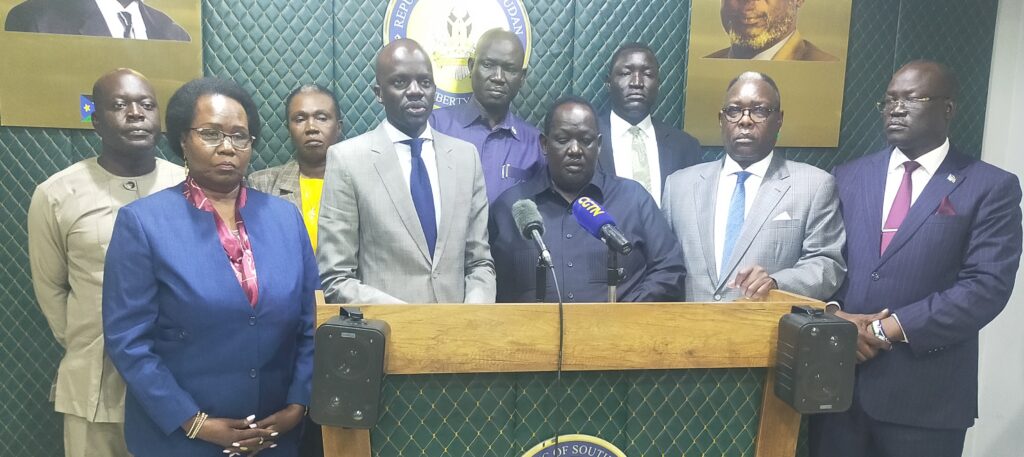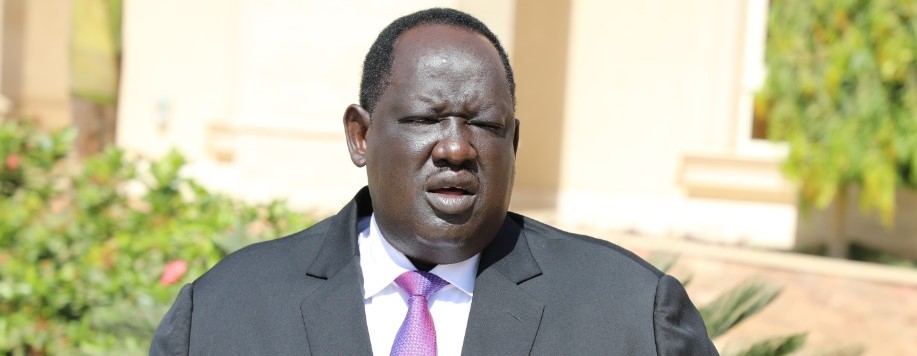The implementation of the South Sudan peace agreement is behind schedule and one of the partners blames the country’s economic crisis for not adhering to the timetable of the adopted roadmap.
A top government official blames the economic crisis for failing to implement key tasks in the implementation process, which includes security arrangements, constitutional-making process, institutional reforms and election preparations.
Addressing reporters in Juba on Tuesday after concluding the review of the implementation of the 2018 peace deal and the roadmap, the Presidential Advisor on National Security Affairs, Tut Gatluak Manime, said the implementation of the agreement had faced challenges due to an economic meltdown, exacerbated by the Sudanese conflict.
The civil war in Sudan has severely disrupted oil exports, depriving South Sudanese coffers of petrodollars, the government’s main source of revenue.
South Sudan’s oil pipeline to international markets, which passes through neighbouring Sudan, was damaged in February this year as a result of fighting between Sudan’s warring parties.
Gatluak, who is also the head of the high-level committee on the implementation of the 2018 peace agreement, said: “Implementing an agreement requires very large amounts of money, despite the fact that South Sudan has been going through an economic crisis.”
“Since the implementation of the peace agreement, there has been no external support except military clothing and the training camps which the government of South Sudan carried out,” he added.

Meanwhile, Petroleum minister and committee member Puot Kang Chuol said they have completed the review of the implementation of the peace agreement and the roadmap and will submit the report to the presidency on Wednesday to make a decision on the elections.
“We have categorized it into three: the completed, the in progress or the ongoing, and the pending. The document is now ready to be tabled before the principals to give us the way forward,” Chol said.
He explained that they had also included the positions of the different parties to the agreement in the recommendations.
“We have also looked at the way forward where the parties to the agreement brought forward their positions, and we have put those in one paper for the attention of the leadership to give us the way forward,” Chuol said.
“Indeed, we have finished our work today, and it will now be up to the leadership to call the meeting. The document will be distributed to the principals so that they can make the final decision,” he explained.
South Sudan has been formally at peace since a 2018 agreement that ended a five-year conflict that caused hundreds of thousands of deaths.
The elections scheduled for last year were postponed to next December, but little preparations were in place.
The feasibility of the December 2024 elections — the first since the country gained independence in July 2011 — is increasingly in doubt.
The original transitional period agreed to in the 2018 peace deal ended on February 22, 2023, while the extension is scheduled to end on February 22, 2025.
Several credible sources told Radio Tamazuj that the parties to the revitalized peace agreement are planning to announce another extension of the transitional period.




